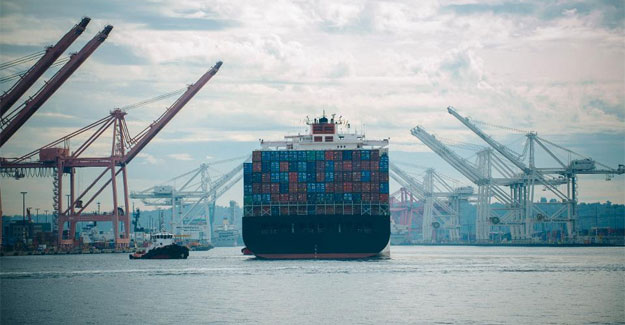
Most US Small Businesses Say They're Looking To Leave China
USA ranks 6th in World Bank's Ease of Doing Business ranking, while China ranks 31st. And even so, China has become the epicenter of the world's supply chain, for almost every product. If there is one thing the pandemic taught the world, it was that we are over-reliant on China for everything from the key ingredients used to make cleaning agents to pharmaceuticals, surgical masks to personal protection equipment. That's not diversification of risks. And small business owners get it. Even if they're not in the business of making Lysol wipes, 56% of 635 North American small business owners surveyed by OFX, a global money transfer operator, said they are considering switching supply out of China, or have already done so. Some 61% of those sourcing products from China, and elsewhere, said they were looking for domestic partners. Slightly more than half of small businesses said the outbreak that started in China in December hurt their supply chains, OFX reported. "We were having problems with China supply chains back in November," says Aaron Sokol, CEO of Q4 Sports, a sneaker brand manufacturing in China. They have seven employees, all based in southern California. Sokol's firm is currently living off three things: savings, an SBA disaster loan, and the payroll protection "We didn't know what was going on until January when they told us there was a problem with a virus outbreak in Wuhan," Sokol says. "We would love to manufacture in the US but the cost of the shoes would be prohibitively expensive," he says, adding that they are looking at alternatives within Asia now. Brazil is also a potential solution due to their domestic, high end shoe manufacturing industry. Mexico is the biggest standout "You have a couple of big names already moving to Mexico, all auto parts," says Alfred Nader, president of OFX North American in San Francisco. "Some of them are leaving China and going to Mexico because of the new NAFTA. Mexico has a nice supply chain in auto and they are decent sized players in textiles and in other industries that require light manufacturing. Most people don't really think of this, but Mexico is cheap and on a labour perspective it is as cheap or cheaper than China," says Nader. Even the Chinese are looking to Mexico now. It is closer to China's largest market - the US. Plus it is easier to develop a relationship with Mexico than it is to develop a new one in China, which is on the other side of the world. Small and mid-sized businesses trying to go global with sales can easily make a day trip out to Mexico if they are from the US southwest. OFX is an Australian company. Some 50% of their revenue comes from there, and that is where the first signs of a change in the patterns of payment flow were the most visible. Average transactions size is around US$ 20,000 at OFX. They started to see payments shrinking in China in number, and going to Indonesia, Taiwan and Vietnam. The US is heading in the same direction. "Using China as a hub...that model died this year, I think," says Vladimir Signorelli, head of Bretton Woods Research, a macro investment research firm. According to 160 executives who participated in Foley & Lardner LLP's 2020 International Trade and Trends in Mexico survey, released in February, respondents from the manufacturing, automotive and technology sectors said they intended to move business to Mexico from other countries - and they plan on doing so within the next one to five years. "Our survey shows that a large majority of executives are moving or have moved portions of their operations from another country to Mexico," says Christopher Swift, Foley partner and litigator in the firm's Government Enforcement Defense & Investigations Practice. For those considering moving operations, 80% said they will do so within the next two years. They are "doubling down on Mexico", according to Foley's report. "Our estimates of possible FDI to be redirected to Mexico from the US, China and Europe range from US$ 12 billion to US$ 19 billion a year," says Sebastian Miralles, managing partner at Tempest Capital in Mexico City. "After a ramp-up period, the multiplier effect of manufacturing FDI on GDP could lead Mexico to grow at a rate of 4.7% per year," he says. According to OFX, American small businesses were forced during the pandemic to find new markets beyond their own neighbourhoods. All they need to do is set up a foreign currency account at a bank, or firms like OFX, and then they can start taking sales orders from whichever currency they are set up to take orders in. Got an Etsy account showcasing your wares? Sell to Brazil. Sell to China, even. That's exactly what China has been doing for years, throughout Asia and into the US. Alibaba was built for that. A total of 83% of the OFX respondents said international markets could offer a good opportunity for them to grow their business as they try recovering from the pandemic. Most Americans have pointed fingers at China. Others at their own failed national leadership. "Everyone has a vested interest in the trade relationship with China, including the Chinese," says Sokol. His company is wholly dependent on China. No China factories are operational because of a crisis, no shoes to sell and showcase to buyers even if you're not in a crisis. "We are looking for alternatives. We need to. Preferably someone that doesn't come with this kind of political tension," Sokol says. "But I'll tell you this much...if China didn't induce this much stress, we would stay there."
Textile Excellence
If you wish to Subscribe to Textile Excellence Print Edition, kindly fill in the below form and we shall get back to you with details.













